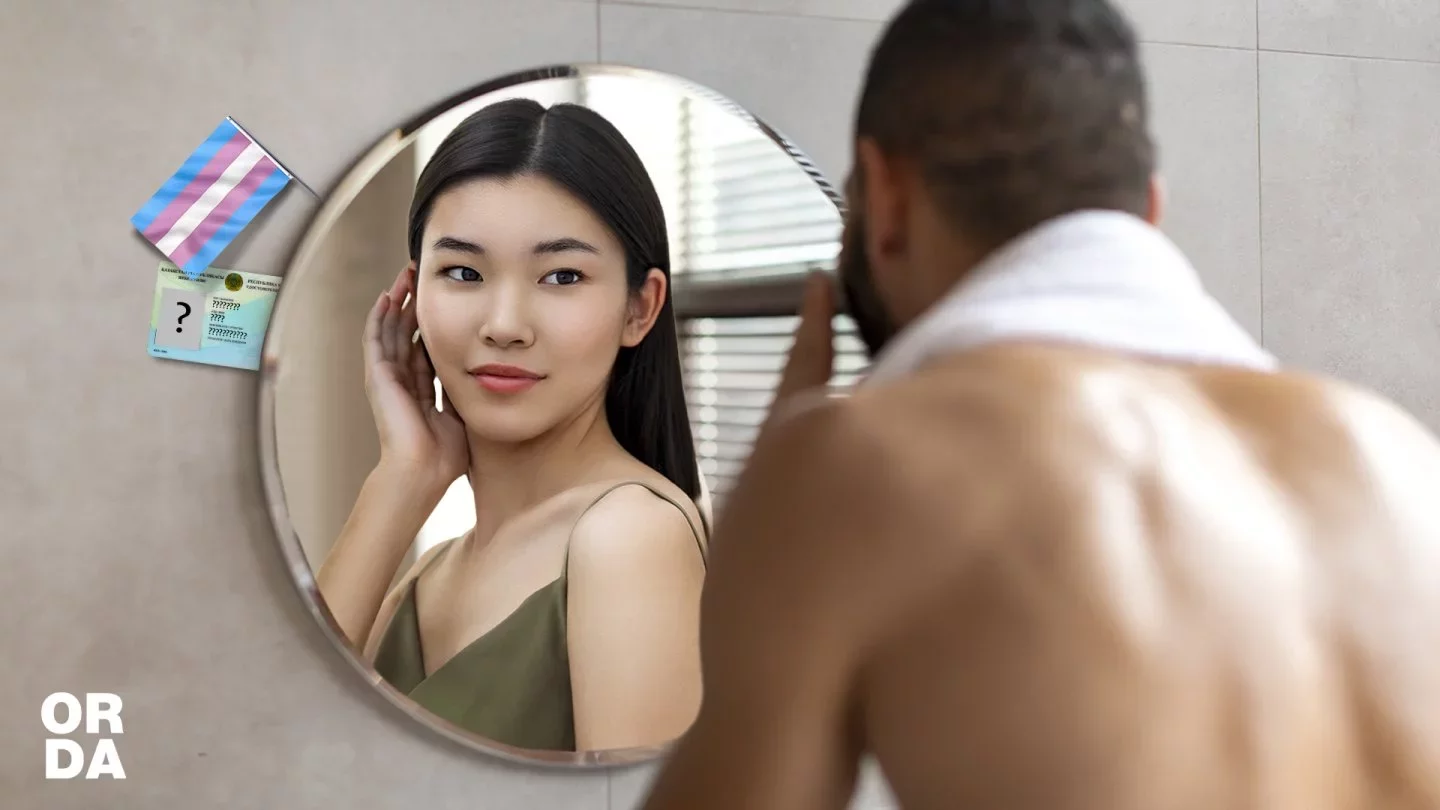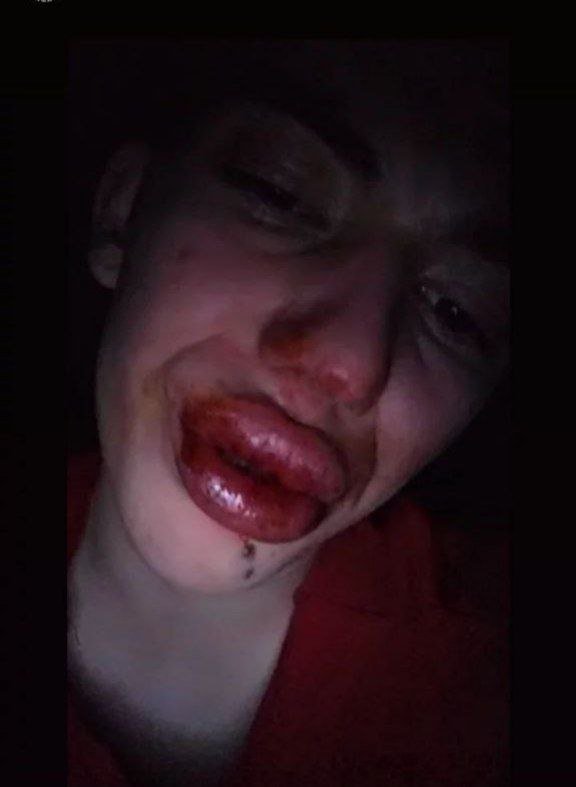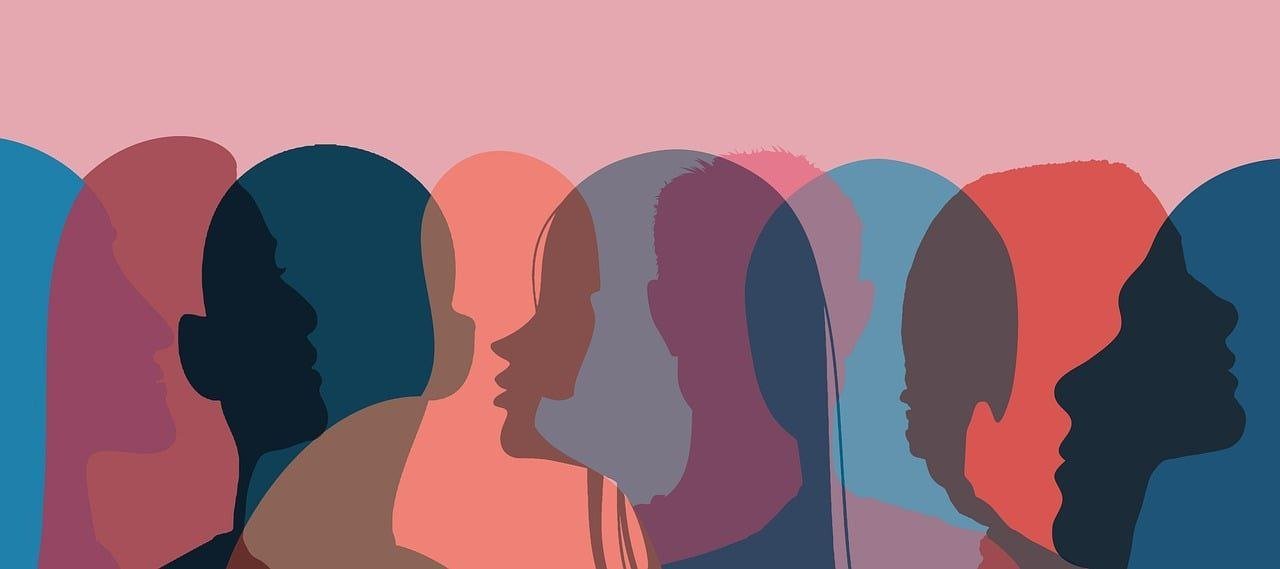Caged Within Your Own Body: Transgender People’s Lives in Kazakhstan
 Orda
Orda
Russia has adopted a law on a complete ban on changing one’s gender marker and performing reassignment operations for transgender people. Kazakhstani human rights activists and doctors, along with the international community, have dubbed the initiative inhumane.
According to official data, in our country, about eight people pass the commission for the permission of transgender transition on average per year, but not everyone reaches the final point – the reissue of documents. Many have been living with the same identity cards for years, constantly having to prove their right to “be" all while facing discrimination and humiliation.
An Orda correspondent looked into how they live in our country and what they think needs to be changed in domestic legislation.
What Happened in Russia?
A new Russian law introduces the following:
- Prohibition of psychological assistance
- A ban on taking hormonal drugs
- Prohibition on changing documents and obtaining permits
- A ban on operations, even for those who have already changed their documents
Mom, They Got It Wrong
Alexander moved to Astana from Russia in 2019. He met a Kazakhstani woman on the Internet, fell in love, and got married. His wife’s relatives would never guess that nine years ago his passport had the name, Alexandra. Alexander does his best to keep details concerning his pas discreet.
That's what irks me about journalists: when you need to write thoughtful materials about real problems of people, including transpersons, almost no one from the media is there. And as soon as something happens, in which a person who made the transition is even indirectly involved, even if they hide it, immediately all the headlines will be full of the fact that "Transgender beat up an unhappy girl" or "Transgender knocked out a person." It's disgusting. Putting features on display that, like nationality, say nothing about personality. It is even worse when a person's data is received from official bodies and replicated, also together with a photo. It turns out that we are actually not legally protected from this in any way. Our background can always be unearthed and ruin our lives. I can live for 20 years with new documents, but everywhere and always I will have to indicate that in such and such a year I changed them and why. We are endlessly compared to mental patients, pedophiles, molesters, says Alexander.
He calls the Russian law banning transgender transition genocide. Alexander believes that thousands of people are now deprived of the opportunity to improve their lives or save them.
In Kazakhstan, no one, except activists, considers how many transgender people commit suicide because they cannot do the transition. And how many teenagers do it because they don't understand who they are and how to live with it? In fact, this is a very large figure. And in Russia now all these people are, in fact, doomed to live contrarily or die. They are even forbidden to provide psychotherapeutic support now. And dysphoria, which turns you inside out, cannot be removed with medications, and transgenderism is not treatable because it is not a disease. You can't take a pill and become "normal" in the sense in which the Russian government sees it. The life of most transgender people literally depends on the opportunity to start hormone therapy and change documents.
Remembering the past, Alexander says that he felt different at about the age of four.
I got upset, and my parents were shocked. I begged for surgery so I could be a normal boy. They explained to me that I was a normal girl and that this whim would pass.
Alexander admits that he was lucky with his parents. He received a gender-neutral name and was not forced to conform to stereotypes. Indeed, after the collapse of the USSR, adults were more occupied with trying to get by.
I grew up as an average boy in the early 90s. I wore my brothers' clothes, had a short haircut, played with construction kits and cars, fought, and climbed roofs. When I realized that they would not do the operation for me, I closed myself off and began to live as I felt comfortable. Unfamiliar people didn't even know who I was when we were playing in the yard. It suited me and I naively believed that it would always be like this.
Problems started at school when Alexander had to begin wearing the uniform designated for girls. Alexander also had to try to prove to classmates that he was one of them and not some "strange girl with a short haircut."
I didn't have any information. There were no computers, no Internet. And I didn't even understand what I was. I talked about myself in a masculine way and perceived everything else as some kind of alternative reality. Here I am Alexandra, a fifth grade student, this is such a mask, I need it so that they don't laugh at me. And then the transition age happened. My breasts began to grow, menstruation started. And it was a tragedy! In order for an ordinary person to understand this, they need to imagine that, if they were a man, they were slowly beginning to turn into a woman. At the same time, everyone around is happy, they say that this is how it should be. And you know that it shouldn't be like this, that it's unnatural! But every day you watch your body change. You don't want it to change, but it does. I thought I was going to go crazy.
Alexander says it took him many years to understand and accept himself. He is of the opinion that if there was more information about transgenderism, he would have made a critical decision much earlier and with fewer losses and problems. He emphasizes that even when he started psychotherapy, he did not immediately find a specialist who understood how to work with transgender people.
For the first time in my life I heard that I am normal, that I am a transgender man. So I began the long journey of self-acceptance and going through the instances. And then there was a difficult conversation with family and friends. I had to cut out a lot of people from my life, but I don't regret anything.
The conversation with his parents happened shortly before starting hormone therapy. Alexander had already passed the commission at that time and received all the necessary certificates.
My parents were afraid that I would become a lesbian, and I came and said that I was a man. My mother screamed that I would be disabled, that they wouldn't sew a penis on anyway, and so on. By the way, plastic correction of the genitals is a completely available procedure, but in fact, when my body began to change, the self perception also changed. Now I don't care what's in my pants anymore. I got everything I wanted. I am Alexander, I am 39 years old, I have a wonderful wife and friends. I no longer have self-loathing, doubts and dysphoria. My body and my feelings are completely the same. We haven't talked to our parents for almost nine years. My right is to live my life as I want, their right is not to accept me for who I am.
Survival Comes First
Twenty-three-year-old Samantha believes that the topic of transgenderism should not be taboo. If her story allows people to learn more about it, she will be happy.
Samantha has been living in Almaty since her early childhood. She did a lot of self-education, graduated from many different courses, but did not receive a specific profession. Things at school didn't work out either. Because of bullying classmates, she had to pick up her documents earlier.
I was about four years old when I realized that I didn't associate myself with men. I wanted to do things that are not typical of a stereotypical boy. I told my mother about it, but she replied that when I grow up, I would have a wife and it would be her business to grow her hair out, adorn herself, behave womanly.
Samantha admits that she had waited for all these thoughts and feelings to pass, but it only got worse. She constantly felt that something was wrong. She feared that puberty would soon begin and her body would change, acquiring masculine features. The decision to start hormone therapy followed.
My mother understood and supported me, but it didn't work out with other relatives. I was kicked out of the house. My older sister, who was responsible for my upbringing, wanted to put me in a psychiatric hospital. In general, almost everyone turned their backs on me. But now I'm on good terms with both my sister and my mother.
Samantha's decision cost more than just her relationships with relatives. She became an adult early on and took responsibility for herself.
I was fourteen when I started taking hormones. It was difficult because I lived on my own and provided for myself. I even had to steal my sister's documents because I couldn't get a job, and I look like her. Now I'm doing a lot of things: volunteering, sex work, webcam modeling, developing my clothing business.
Despite the fact that Samantha has already had operations, she has yet to receive documents for her female name. Samantha was born in Belarus and requesting a birth certificate from there, according to her, is essentially a waste of time. The girl hopes to get a new passport later in another country.
When asked what was the most difficult part on the path she chose, Samantha answers:
The most difficult thing was to survive. I was all alone. I didn't have enough support. There were a lot of threats in social networks and physiological abuse. It hasn't reached the physical (level - Ed.) yet, but I would like the laws to support transgender people, and especially teenagers.
She believes that in Kazakhstan it is necessary to toughen the punishment not only for harassing and violence against transgender people, but also for police and civil servants doing much of the same. According to her, there are too many such incidents.
Samantha says that it is important to review the system of changing documents for transgender people. Removing reassignment operations from the list of requirements as well as the reduction of the age at which hormone therapy can begin should be considered. The reason - for many, this is literally a matter of life or death.
I Thought I Was The Only One In Kazakhstan
The struggle with the outside world or the struggle with oneself is a fact that sooner or later many transgender people face. Ruslan, who started life with a clean slate at the age of 32, was no exception.
Now he is an Alma-TQ activists. This is an initiative that provides assistance and support to transgender people. Ruslan once believed that he was the only one in the whole country.
I realized that I was different from other people probably at the age of five, but full awareness and acceptance of myself occurred at the age of 32. I lived for a long time trying to play the role that society imposed on me. Building a career. And then I realized that I couldn't do it anymore, as if I was living someone else's life that didn't bring me happiness. I got depressed and didn't know what to do next.
He was afraid to think about how his family would take the news that he was going to pass the commission. But despite Ruslan's fears, the reaction of relatives was extremely balanced.
First of all, I told my mother about everything. She not only supported me with words, but also with actions – she went with me to the commission. Dad was shocked, but a year later he accepted me. Now he's already calling me his son, and it's doggone nice. The rest of my relatives also supported (me - Ed.).
His friends behaved differently, however. Not everyone was ready to accept Ruslan's choice. Some said that they would continue to call him by his female name. Ruslan has stopped communicating with them, deciding that he did not need such people.
Some said, "well, finally," “(you’ll - Ed.) get married at least." I didn't have to change my job, because I've always been masculine and when my voice started to crack, I just said that I go to the gym and the coach prescribed dietary supplements, they made my voice drop.
Ruslan changed his identity card after 1.5 years after receiving all the necessary certificates and operations. Having gone this route, he is sure that the requirement of mandatory surgey in order to issue new documents should be removed from the legislation as soon as possible.
Imagine, a person has already started hormone therapy and has stopped externally conforming to their previous documents, and they do not have money for the operation yet, or they do not need it because of their inner self-perception. At the same time, you are not hired because, for example, you already look like a man externally, but according to (your - Ed.) documents – ( you are - Ed.) a woman. Many people start having problems in educational institutions and other institutions. You have to constantly experience stress, explaining and proving. That is, every time you have to tell a complete stranger about yourself very personal things. It's not normal. This is a lot of stress and humiliation. Many people face insults and other unpleasant moments. And then, a person has the right to decide for themselves whether they need body correction operations. All developed countries have long abandoned this practice. And I think it is necessary to introduce penalties for discrimination. I think if we were protected by the law, it would be a little easier to deal with transphobia in society
Ruslan admits that he does not really count on transgender people’s circumstances in Kazakhstan improving in the foreseeable future. He believes that apart from transgender people themselves, their fate is of no interest to anyone, both society and the state. Therefore, they have to take care of themselves. The laws adopted by the state, according to him, can only complicate the lives of vulnerable groups and all citizens in general.
Often Threatened and Still Am
As a rule, those who shared their stories with Orda talk about them in a matter-of-fact tone. The normalization of such cases is terrifying.
Albina Goldstar from Qostanay has both the acceptance of relatives and a profession that she enjoys. She is a certified pastry chef. Albina loves beautiful outfits and makeup, hanging out with her friends and wants to be liked.
 Photo from Albina Goldstar's personal archive
Photo from Albina Goldstar's personal archive
Her family found out about everything by chance when, on an online broadcast with a friend, Albina admitted that she wanted to marry a tall and handsome man.
The whole district, parents, relatives found out about me. One of the girls who was watching my stream took a screenshot of the screen and sent it to everyone. My sister called me, she was crying her eyes out. We talked for a while, I explained everything to her, and she understood me. I then felt like I had never felt before. I wanted to call another sister, but she said: “You're dead to me. (the sister used the masculine form of die in Russian - Ed.)” I replied, “Not dead, but dead. (Albina used the feminine form - Ed.)” We haven't spoken since then,
Albina is twenty years old. She recently came to Almaty to pass the commission and get the right to take official medications and make other changes. The process is not fast. It may take several months.
Mom said:
"I don't care if you're a woman or a man, you're my child.”
The neighbors didn't know at first, and then some were shocked, and others supported mom.
Albina speaks of herself as a strong personality who overcomes all difficulties. She remembers coming home alone one day after meeting her friends. A group of men stopped her on a dark street and asked her to light a cigarette.
I replied that I don't smoke. They asked why I didn't look normal, they said, you're a man. And when I asked them to move out of the way, they started assaulting me. One made sure that no one was around, the second kicked, the third punched (me - Ed.) in the face.
Albina has kept the photos showing the consequences of the attack. She posted them on Instagram with the caption: “Look what these freaks are doing, that's how they treat us!” Photo from the personal archive of Albina Goldstar
Photo from the personal archive of Albina Goldstar
In general, I was often threatened and still am periodically threatened, there were other cases when I was assaulted for (someone - Ed.) not liking how I looked. In college, there was bullying by classmates. But on my path of change, the most difficult thing was to accept myself as I really am
Unfortunately, the men who attacked the girl were not punished.
When asked what needs to be changed in the country so that she is comfortable and not afraid to live, Albina answers unequivocally:
I want people to finally understand that we are not dangerous. We don't kill anyone, we don't steal, we don't do anything wrong. We just want to live like everyone else. There is just one life, and no one will live it for me the way I want. That's why I want to be myself, and that no one bothers me and people like me.
The Right To Be Happy
Alma-TQ has a wonderful initiative where parents of transgender people can meet, talk face-to-face and support each other. They admit that accepting their child for who they are is not an easy task. Parents also need help along the way.
When my child told me that she was my daughter and not my son, I experienced shock and rejection. There were a lot of feelings and a wave of fears. First of all, I feared for her life, the consequences that her choice would bring her. How she would adapt to society, suddenly she would be bullied, friends would turn away, what would happen to her work. And how could I protect her and keep her from this, says Aida Kali, the mother of Alu, a transgender girl.
Aida remembers that emotions were overwhelming. She experienced the pain of losing the child she knew and was used to. At the same time, there were fears for her newfound daughter’s health. Aida did not know what hormone therapy was and how the process would be done.
I didn't know anything about it at all. I was also worried about whether she would find a partner, whether she would have a normal sex life at all. And I was overwhelmed with guilt. I asked myself: maybe it's my fault, maybe I did something wrong? Why is this happening at all?
Aida says that, initially, it is necessary to give free rein to your feelings, to grieve, cry, and inform yourself. Knowledge about transgender people calms and answers many questions.
Acceptance comes when you realize that your child's life is not your life, and it's not up to you to decide how he or she lives. Maternal love should not be tied to the past, to the image of the child and to parental expectations. This concerns ego, not love. I burned everything in my memory and looked at her in a new way every day. The challenge has presented itself, and we must fight for her happiness. And it's an exciting transformation.
Aida often attends parent chat meetings and has seen by her own example that parents of transgender people need help and support no less than their children.
Of course, they need help and, above all, the support of other parents who have already gone through this. They should know that they are not alone and that all their experiences will be understood and accepted. A child will be immensely happy and grateful if they are not rejected, but accepted as they are. It's a million times harder for them, because they have to go through a thorny path of transition.
She explains that the first year is the most difficult. Aida says that one must also be prepared for society’s rejection.
There is a hate. More often silent, detached. Bewilderment and malevolence. It's all there. But on the surface, people are usually afraid to say something to you if they see your inner strength. Because as soon as a parent accepts their child themselves, no one will be able to shake him. Of course, they can hurt you. But there is no way to crush or break them.
Rights and Law
Irina Lenskaya is widely known by all transgender people in Kazakhstan. She is a psychiatrist, Candidate of medical sciences and chairman of the medical advisory commission at the Republican Scientific and Practical Center for Mental Health. It is this commission that decides whether to allow a person to undergo transition surgery or not. The procedure is long and difficult.
The commission consists of:
- Three psychiatrists (one of whom has special knowledge in the field of sex pathology)
- A urologist
- A gynecologist
- A therapist
- A endocrinologist
- A psychologist.
Since 2015, Lenskaya has been taking an active part in several forums devoted to the problems of gender incongruence (discrepancy – Ed.), including the world Congress in Amsterdam.
She speaks with horror about the recent law that was adopted regarding the transgender transition in Russia.
The authors of this bill have no idea about gender incongruence, and this prevents healthy people from getting the necessary help in the form of gender-approving medical procedures! The ban, which they approved at the legislative level, contradicts all consensus scientific data, contributes to the multiplication of transpersonal suffering and an increase in suicides. It causes specialists only anger and shame.
This law is inhumane and violates basic human rights
However, Kazakhstan's laws are also not a reason for pride. Only having undergone transition operations can serve as a reason to change gender in documents. Lenskaya says that so far it has not been possible to overcome this “norm”.
The problem is low awareness, incompetence and legislators with tunnel vision, sometimes pure transphobia! The degree of medical intervention of a transgender person is decided only by themselves, and only they should determine which gender-affirming procedures will help achieve harmony with themselves. No one has the right to dictate or demand medical procedures, and even more so invasive surgery and associate it with legal gender – obtaining documents.
According to the doctor, on average, about eight people pass the commission for obtaining certificates per year, whereas approximately sixteen attend a psychiatrist's initial examination. There have been few refusals to issue certificates since 2014, five at most. And each such case goes through a hospital to find out whether a person’s desire for gender transition is a sign of a mental disorder.
The reason for refusal of permission for gender transition may be:
- Confirmed diagnosis of PSD (premature sexual development)
- The presence of genetic and chromosomal abnormalities
- Somatic features that can complicate the process of gender transition and become a threat to human life and health
- Negative results of the first stage – hormone replacement therapy
According to Lenskaya, not all doctors are ready to work with transgender people even on basic health issues.
This affects the number of visits to doctors when problems arise. People simply understand that they will be denied help. This factor directly affects transgender people’s quality and life expectancy.
Although in recent years there has been a slight trend towards greater awareness and acceptance among medical professionals, Lenskaya emphasizes that this is “a drop in the bucket.”
Not all (of my - Ed.) colleagues understand that assistance in passing gender-approved procedures is the duty of every health worker. Only we can help transpersons achieve harmony and live their only life in harmony with their inner sense of self.
Lenskaya notes that only adequate information and public education will help to change the situation, so it is necessary to discuss such topics.
Lawyer Tatiana Chernobyl agrees with her. She advises Alma-TQ on legal issues and believes that the law adopted in Russia is inhumane.
The refusal of a person to consolidate gender identity violates a number of human rights obligations. Including the rights to health, privacy, and freedom from at least degrading treatment, if not torture. The right of a child of transgender parents to grow up and be brought up in a family,
According to the lawyer, this law shows how the state can afford to invade a person's personal life out of incomprehensible "completely ignorant considerations", instead of helping a citizen, as required by the obligations of a state.
I'm afraid that now in Russia this will entail either the forced flight of transgender people from the country, or an unenviable lifestyle, possibly a wave of suicides. In fact, people are denied de jure, that is, consider it civil, and even just legal, recognition, that is, the opportunity to be and remain themselves,
The lawyer speaks with regret about the current laws regulating gender transition in Kazakhstan.
The requirement of surgical interventions to change documents, according to the UN, is tantamount to torture.
Now in Kazakhstan, transgender transition is available to people from the age of 21, but the gender marker in the documents can be changed only after the so-called gender surgical correction.
Such a requirement, according to the UN, is equivalent to torture. In May 2023, the UN Committee against Torture, in its recommendations to Kazakhstan, indicated the need to abolish this requirement in the Marriage (Matrimony) and Family Code. And also about the abolition of the requirement for a psychiatric diagnosis to change documents. It was also about the establishment of a non–discriminatory procedure based on the will of a person, providing him with the necessary psychological and social support, says Chernobyl.
Where to turn if need be:
Alma-TQ is a Kazakhstan transgender initiative whose goal is to improve the quality of life and strengthen the community of transgender, transsexual, gender non-conformal and gender non-binary people in Kazakhstan.
KMBHR is the Kazakhstan International Bureau for Human Rights and Rule of Law.
Original Author: Yuri Nizhnynovgorodskyy
DISCLAIMER: This is a translated piece. The text has been modified, the content is the same. Please refer to the original article in Russian for accuracy.
Latest news
- Timur Kulibayev vs. New Kazakhstan: Oligarch Defends His Assets
- MP supported Imam's Statements About Kazakh Traditions
- Altyn Adam: How Filmmakers Quarreled Over Cartoon About Scythian Warrior
- "No Chance": Russian Deserters' Stories in Kazakhstan
- National Fund Earns As Much As It Spends
- What is Going on with FPL Head's Recent Appointment?
- Stati Case: Victory for Kazakhstan?
- Qataris to Spend $3.5 Billion on Construction of Plants in Kashagan
- Oil Quotas: a Blessing or a Curse for Kazakhstan?
- Plant in Kazakhstan: Swiss Investor Purchased, Legal Battle Follows
- Situation with Russian Securities in Kazakhstan Explained
- Uranium Mining Tax in Kazakhstan to Change Starting in 2025
- Chinese Oil Giant to Build Wind Farm in Kazakhstan
- Expert Explains Toqayev Greeting Xi Jinping in Particular Way
- Scandal around "Aria-Zhana Astana", Controlled by Satybaldy, Not Subsiding
- SCO Summit in Astana: What to Expect?
- Who Was Oppositionist Aidos Sadykov?
- KNB Agent Orik VS Financial Police Agent Sanych
- Nazarbayev's Relatives on Trial: Systemic Purge or Political Games?
- Fire in Greece: Luxury Yacht, Kazakhstani Oligarchs' Vacation Scandal



